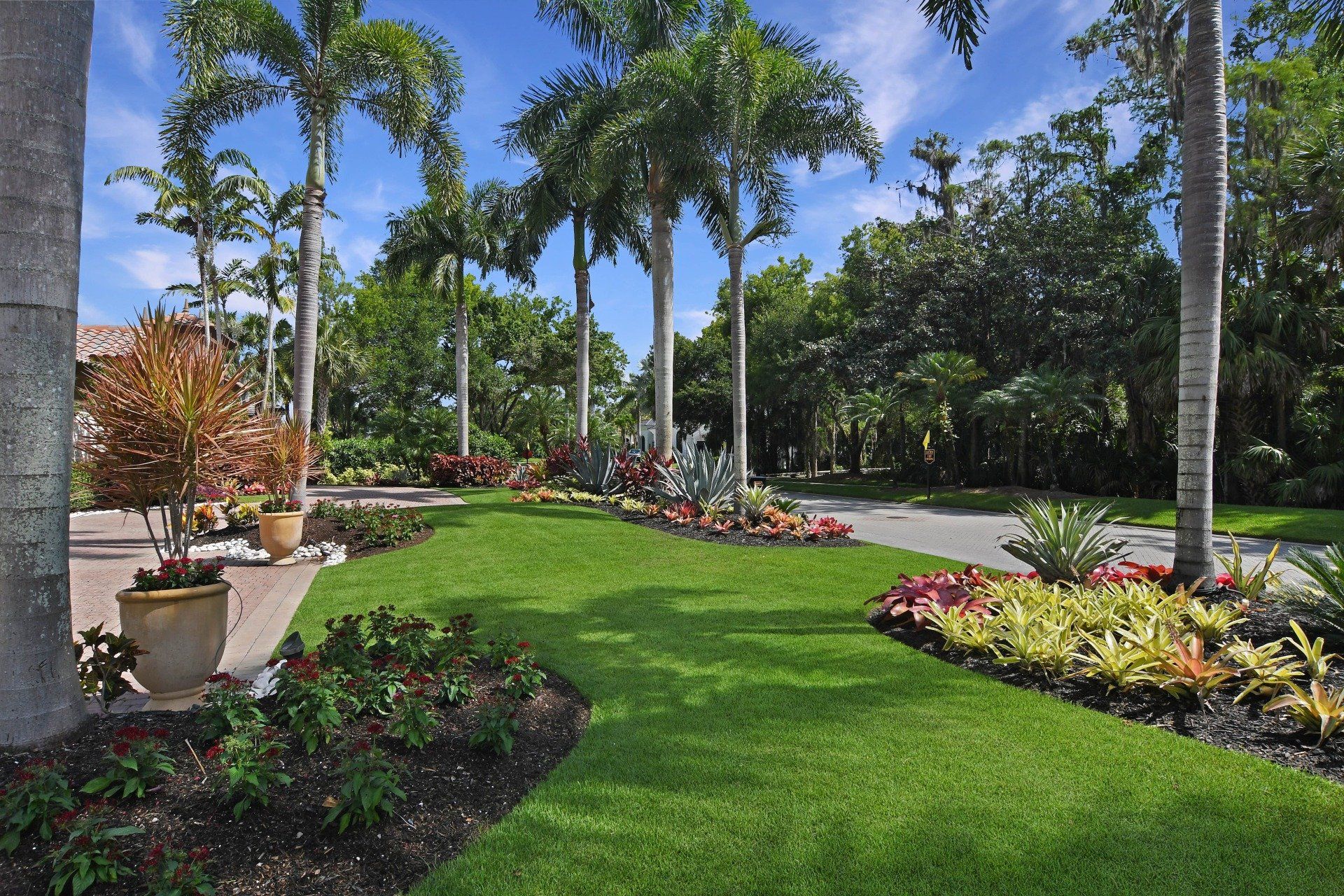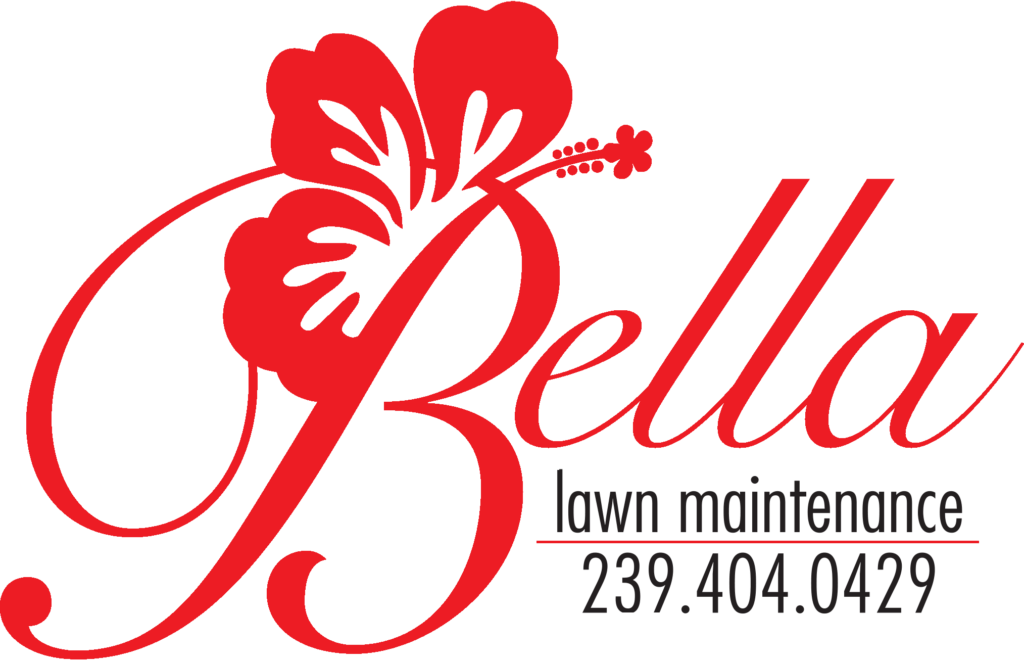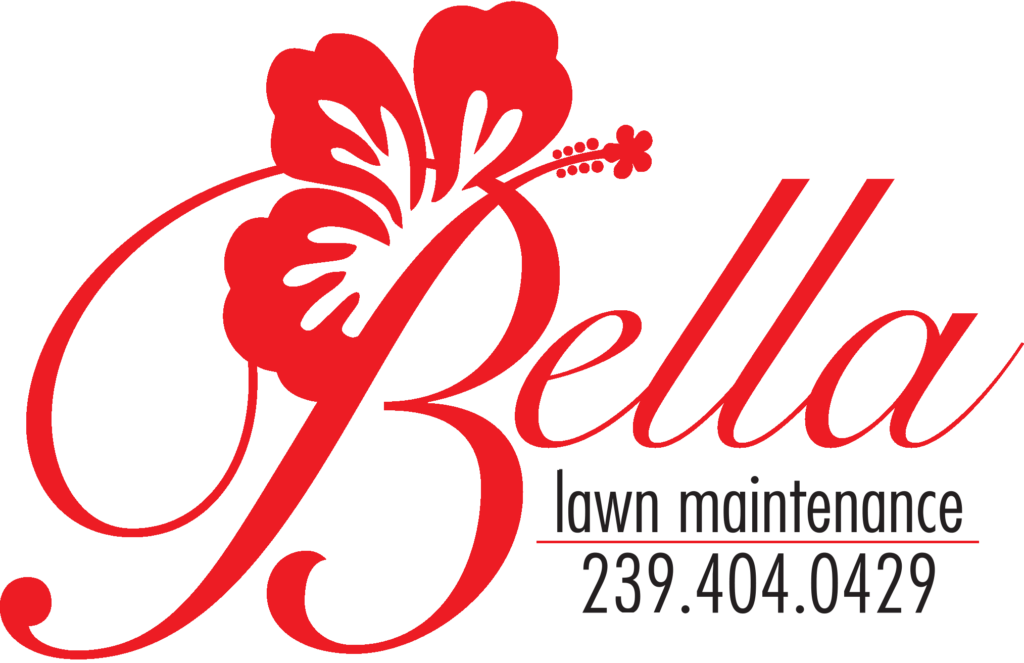Welcome to Bella Lawn Maintenance, LLC
Commercial & Residential Fertilization Services In Naples, FL
Choose Bella Lawn Maintenance for all your residential and commercial Naples, FL Fertilization services!
To speak with someone directly about scheduling Fertilization services, give us a call Monday through Friday during regular business hours or simply click or tap the button below to contact us via email.
Thank you and we look forward to being your 'go-to' lawn maintenance provider.

8 Questions To Ask Before Fertilizing Your Lawn
Fertilization Tips for Do It Yourself'ers
Do you know how much fertilizer your lawn needs to stay green, lush, and healthy?
Not all grasses are created equal. Some are naturally more resistant to pests and disease than others. Before you fertilize your lawn, ask yourself these questions to determine which type of fertilizer is best for it.
The peak growing season for your area will help you choose the appropriate type of fertilizer with the right ingredients for that time of year.
Different types of soil also require different types of fertilizer. Some soils may need organic matter to increase their ability to retain moisture and nitrogen sources to improve their vitality. Other soils may need lime or sulfur as amendments to correct pH imbalances or mineral deficiencies.
Once you're armed with this knowledge, check out this list of questions that can help you pick the right type of fertilizer:
What's the PH of My Lawn?
A balanced soil pH is one of the most important factors in healthy turf. It indicates that your lawn has a good balance of nutrients. Soils with a pH of 6.5 to 7 are generally considered ideal, while those with values below 6 shelter dangerous levels of toxic elements such as aluminum, nickel, and iron. If your pH levels are too high or too low, take action by applying amendments to your soil before adding fertilizer to balance it out. You should also test for excessive amounts of copper or iron in your soil if your grass does not seem to grow well or is turning brown during the summer months.
Does My Lawn Currently Have Any Deficiencies?
Some lawns might need phosphorus, potassium, or magnesium to grow well. If your lawn is a little patchy or overgrown, consider applying an organic fertilizer with a phosphate component in the spring, such as potassium sulfate (known as superphosphate). If the root system can't absorb it, then it will be washed away by rain. This will allow your grass roots to get some of the nutrients they need. If a phosphorus deficiency is causing your lawn to struggle, consider adding sulfur or lime to amend the soil and boost nitrogen levels. Or turn to alfalfa meal for a supplement when growing conditions don't seem right. After treating a lawn for deficiencies, take the necessary steps to maintain the right pH level.
Is My Lawn Currently Infested With Pests or Disease?
A healthy lawn can fend off many infestations and diseases, but if a pest or disease is on the loose in your area, you'll need to treat it quickly and thoroughly. Many insecticides contain chemicals that are toxic to humans and animals alike. If you only want your grass to be healthier and don't have time to dedicate to extensive control measures, consider applying an organic insecticide like diatomaceous earth instead. Organic fertilizers can also help by creating a healthier environment for your soil overall.
How Much Sunlight Does My Lawn Get?
Sunlight is essential for growing healthy turf, but it can also be harmful to your lawn if you don't know how much your yard gets. You can measure the amount of sun by using a sunshine estimator or just taking a look at the number of days you have in the fall and spring. To help prevent yellowing or browning, apply an organic fertilizer at least once a month during these months. You should also water your lawn correctly since excess water promotes fungus growth and encourages weeds to grow. If you notice that one part of your yard is suffering more than others, this could be the cause of your lawn's weak spots.
Should I Use Organic Fertilizer, Synthetic Fertilizer, or Both?
Organic fertilizers are made from natural ingredients such as manure, compost, and manure-based fertilizers like textured fish emulsion. They're better for the environment and your health than synthetic fertilizers. Organic fertilizers contain nutrients that plants need to grow healthy, lush lawns that are resistant to pests and disease. Synthetic fertilizers have been created using chemical processes to mimic the natural sources of nutrients that make a healthy lawn tick; many also include an additive called "organic phosphate" that is used to prevent nutrient deficiencies or chlorosis in turfgrass.
Do You Have Any Areas With Poor Drainage?
If your lawn doesn't get enough water, it could turn into a hotbed for fungus and disease. Make sure that the soil drains freely to prevent water stagnation, but also feed and water your lawn regularly. If you have a mulched yard, make sure that the surface is fully covered in snow cover at least three times each winter to prevent mold from forming.
Is There Anything Growing in Your Yard That Shouldn't Be There?
Some vegetation can contain harmful chemicals or other substances that could damage your lawn or negatively affect its health. Some of these plants include garlic, dill, rue, or black walnuts. If you can't identify a plant on your lawn in person, have a look online to see what it might be using the Pest Plant ID app.
How Often Is My Lawn Watered?
Most grasses need about six inches of water a month to thrive, depending on their type and location. Watering once or twice a week can be enough, but choose your watering schedule wisely to keep your lawn healthy for the season without stressing it out. Note that you'll want to move slowly with any new watering schedules because each type of grass has different needs based on its strain and climate needs.
You should now be able to determine which type of fertilizer is best for your lawn. Are you planning on buying an organic fertilizer or instead going with synthetic? If so, it's important to know how to use it properly without damaging your turf. Organic fertilizers tend to be slow-release; this means that they are applied and need time to break down before they become available to grassroots.
Bella Lawn Maintenance is proud to offer premium Naples FL lawn maintenance and landscaping services.


